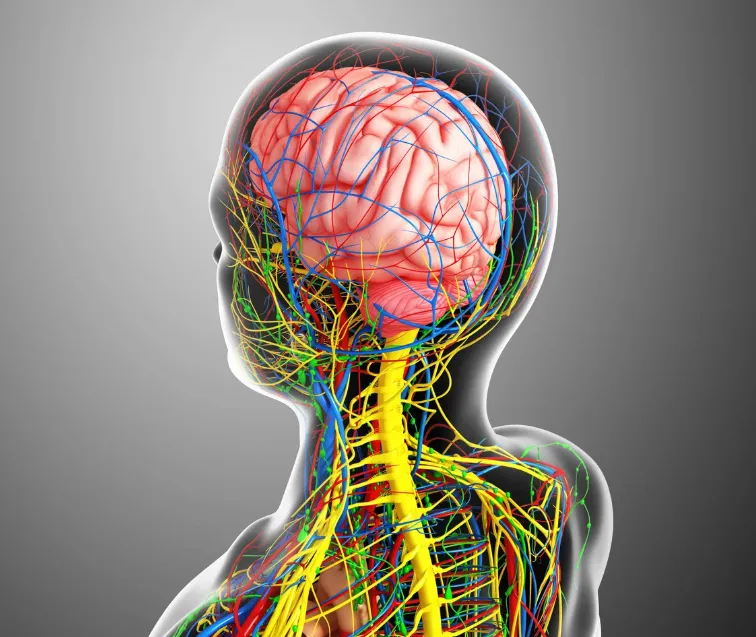
What the Glymphatic System Has to Do With Brain Clarity
You’ve probably heard of the lymphatic system—your body’s drainage network that helps move waste out of your tissues and supports immune health.
But did you know your brain has its own version?
It’s called the glymphatic system, and if you’re waking up groggy, feeling mentally foggy, or forgetting things you know you should remember, this little-known system could be the missing piece.
What Is the Glymphatic System?
The glymphatic system is your brain’s waste-clearing network. It was only officially discovered in 2012, which means many people—even health professionals—still haven’t heard of it. But here’s why it matters:
Just like the rest of your body, your brain produces waste—things like cellular debris, excess proteins, and metabolic byproducts. If that waste isn’t cleared efficiently, it can start to build up and interfere with how your brain functions.
That buildup contributes to:
Slower thinking and processing
Poor neurotransmitter communication
Increased neuroinflammation
And in more serious cases, accumulation of waste proteins like beta-amyloid has been linked to long-term neurodegenerative conditions like Alzheimer’s.
Why Sleep Is Critical for Brain Detox
Here’s the fascinating part: the glymphatic system only works while you’re asleep—specifically during deep, slow-wave sleep.
During this phase, your brain’s glial cells shrink slightly to create space. That allows cerebrospinal fluid to flow more freely through the brain, flushing out toxins and carrying them into the lymphatic system for elimination.
So if your sleep is shallow, disrupted, or inconsistent, your brain can’t clear out waste efficiently. Over time, this leads to mental congestion—what many people describe as “brain fog.”
Signs Your Glymphatic System Might Be Struggling
Symptoms of poor brain drainage often include:
Morning grogginess, even after a full night’s sleep
Brain fog that’s worse in the morning
Memory lapses or word-finding issues
Difficulty focusing or concentrating
A “heavy” or full feeling in your head
If you’ve been feeling this way, supporting your glymphatic system may be a key part of restoring mental clarity.
How to Support the Glymphatic System
This isn’t about complicated detox routines—it’s about giving your brain the right conditions to do its job.
Prioritize Deep Sleep
The glymphatic system is only active during sleep, especially deep sleep. Support it by:
Avoiding screens 30–60 minutes before bed
Dimming your lights in the evening
Going to bed around the same time each night—even on weekends
These simple steps improve your sleep quality and allow the glymphatic system to kick into gear.
Slightly Elevate Your Head While Sleeping
Sleeping with your head slightly elevated (about 10–15 degrees) can improve glymphatic flow. A wedge pillow or an extra pillow is often enough to make a difference.
Downshift Before Bed
Your nervous system needs to shift out of fight-or-flight to access deep sleep. Try:
Slow nasal breathing (aim for about 6 breaths per minute)
Legs-up-the-wall pose
Gentle stretching or reading a physical book
These practices signal to your brain that it’s safe to rest.
Hydrate Early, Not Late
Your brain needs fluids to flush waste—but chugging water at bedtime disrupts sleep. Focus on hydration earlier in the day, and aim for mineral-rich water by adding a pinch of sea salt and a squeeze of lemon.
Support Lymphatic Flow During the Day
Even though the glymphatic system works at night, it relies on a healthy lymphatic system during the day to carry waste away. Try:
Light movement or bouncing
A daily walk
Dry brushing
Gentle stretching or yoga
These practices help keep things moving—not just in your body, but in your brain.
Add Neck Massage or Self-Release
The lymphatic vessels around the neck and base of the skull are critical for brain drainage. Gentle massage or craniosacral self-release techniques can improve fluid flow and relieve pressure.
When Brain Fog Doesn’t Budge
In people dealing with chronic fatigue, long-term neurological symptoms, or persistent brain fog, glymphatic stagnation is often part of the picture.
That’s why it’s so important to look at the full context:
Sleep quality
Nervous system regulation
Mineral status
Drainage pathways
They’re all connected—and when they’re supported together, the brain begins to feel lighter, clearer, and more responsive.
Your Brain Isn’t Broken—It Might Just Be Congested
If you’ve been waking up foggy or feeling like your brain is overloaded, this could be why. Your brain has a built-in cleaning crew—it just needs the right environment to do its job.
If this resonated with you, give the video a thumbs up and subscribe so you don’t miss what’s coming next. We’ve got more education coming around detox, drainage, and restoring a brain that actually feels good to live in.
And if you’re ready to stop guessing—and want to understand what’s going on behind your symptoms—👉 [Book a free call here]. We’ll look at your sleep, energy, and brain clarity together and map out a personalized path forward.
